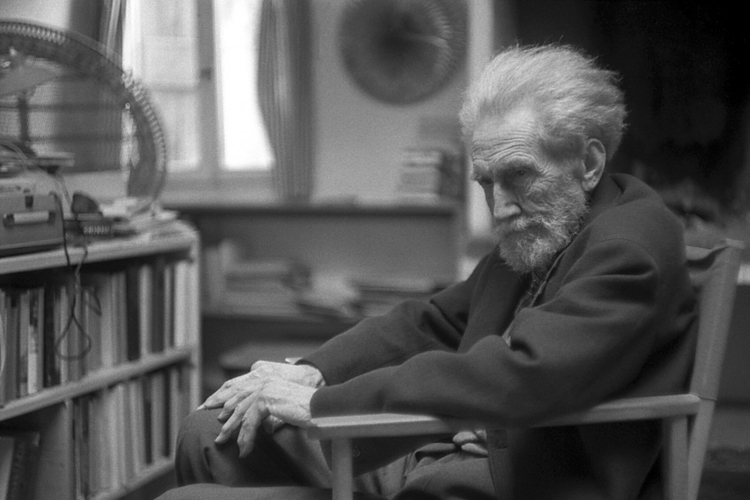In The Nation, Evan Kindley has a review-essay of The Bughouse: The Poetry, Politics, and Madness of Ezra Pound by Daniel Swift. After his ignominious return to the US in the wake of WWII, Ezra Pound was institutionalized at a federally funded mental hospital. As Kindley explains, Swift’s book examines how many of Pound’s poetic admirers, in his own day and today, have used his apparent mental illness to excuse his virulent fascism and anti-Semitism. Read an excerpt from the piece below, or the full text here.
The insanity defense may have saved Pound’s life, but it has created permanent difficulties for assessing his literary achievement and, for that matter, reckoning with his politics. The simplest courses are to denounce Pound’s work in total (easy enough to do, particularly for critics who were already hostile or indifferent to modernism) or to bracket its ideological content, suspending judgment and even, in many cases, understanding. (This, too, can be seen as a by-product of Cornell’s insanity defense: If Pound’s racism is merely a symptom of his madness, why bother to track its logic or try to comprehend its appeal?)
While a great deal of excellent scholarship has been published on Pound’s fascism, there is still a tendency among those who study him to minimize or ignore his politics. Of his visit to the 2013 Ezra Pound International Conference (EPIC) in Dublin, Swift reports: “I hear ‘versifier’ used as a term of abuse, and an hour-long elucidation of three lines of a fragment. I hear an awful lot of gossip about long-dead literary editors. I hear no mention of fascism or anti-Semitism.”
Image of Ezra Pound via the Poetry Foundation.
